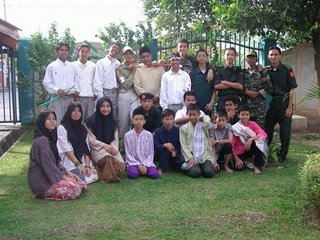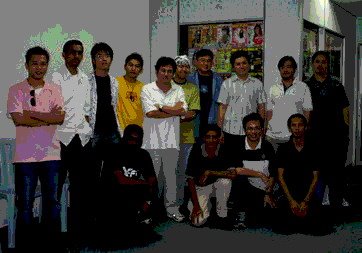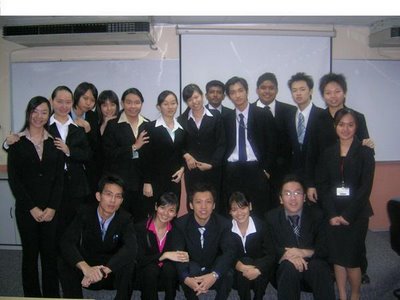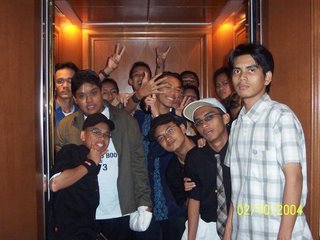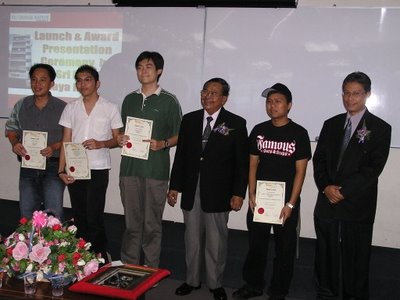DiGi.com Bhd has proposed a 60 sen per share capital repayment totalling RM450 million � the second such exercise it is undertaking within six months of announcing a RM562.5 million capital repayment last October.
DiGi told Bursa Malaysia yesterday that the capital repayment would partly be via the reduction of its share par value from 25 sen to 10 sen each, representing a total reduction of RM112.5 million.
It also said there would be a reduction of its share premium account by RM337.5 million translating to a capital repayment of 45 sen for every share of 25 sen each.
At a press briefing in Kuala Lumpur yesterday, DiGi chief executive officer Morten Lundal denied speculation that DiGi�s major shareholder Telenor may be preparing to leave Malaysia with the capital repayment exercise.
�DiGi is a Malaysian company and it will remain in Malaysia. Telenor�s commitment in Malaysia is unchanged,� he said.
Lundal said DiGi had excess capital as it still had RM1.3 billion in cash and RM700 million from the sale of the Commercial Paper/Medium Term Notes (CP/MTN). As such, it was opportune to repay its shareholders, he said.
He said DiGi expected its net profit in the year ending Dec 31, 2006 to grow by at least 20% on the back of a higher revenue growth, which has also been revised upward to the mid-teens from 10%-15% earlier.
It had earlier projected a net profit growth in the mid-teens. It also reduced its capital expenditure from an expected RM800 million-RM900 million earlier to RM750 million-RM850 million.
The lower capex is due to the company�s failure in bidding for a 3G licence. However, Lundal said DiGi would be more aggressive in its voice and data segment.
There could be an upside to net profit growth if the company changes its depreciation policy this year, which is still under review.
Lundal said the three core strategies this year is to expand: its voice coverage and quality; its EDGE by increasing its speed and coverage; and investing more than planned in relevant and existing data service.
On the possibility of partnering with one of the new 3G spectrum licence holders, he said: �To partner with them is not our priority now, and not very desirable.�
Lundal said DiGi had achieved 80%-82% of voice coverage and between 50%-60% for EDGE in the country.
DiGi chief marketing officer Chee Pok Jin said it would the first to introduce auto-adjusting rates for data this year and the first to offer unlimited broadband mobility for pre-paid.
It will also be the first to offer smart solutions for multiple device users, including the sharing of a RM99 unlimited packaged and supplementary SIM for data at RM33 per month.
Chee said it would also address the needs of the entrprise markets by offering data-only SIM and tailored price plans without any charge for voice services.
Its paid-up capital will be reduced to RM75 million comprising 750 million shares of 10 sen each, while its share premium account will be reduced to RM15.15 million from RM352.65 million.
Under the first capital repayment last year, the par value of DiGi�s shares was reduced from RM1 to 25 sen each.
DiGi said the capital repayment would be funded via the proceeds from a capital repayment by its wholly owned subsidiary DiGi Telecommunications Sdn Bhd (DiGiTel).
It said it was expected to receive RM451.5 million from DiGiTel pursuant to the latter's repayment exercise. DiGi said it expected the proposals to be completed by the fourth quarter of 2006.
It said the group's return on equity would improve to 38.13% after the proposals compared with 27.94% prior to the second capital repayment.
The company last October had made a definitive commitment to its shareholders towards paying dividends comprising at least half of its net profits from this year.
DiGi said the second capital repayment reflected its continuous effort to achieve an efficient capital structure, adding that the exercise was an efficient method of rewarding shareholders.
It said the exercise represented its initiative to reward its shareholders for their continuous support of the company and that the quantum of the second capital repayment took into account its dividend policy announced last year.
DiGi said it expected its financial position to remain robust by the continuing growth of the telecommunications industry in the country and its established brand recognition in the local market.
Any comment?



 This the situation when i took the Rapid KL bus 205 from the Taman Melati LRT station yesterday... Even though this is not the Bus drivers fault and it is an attitude of an uncivilized person, BUT the 2 trips before that which 2 of my friends took the bus noticed this situation 2 hours before me(I took the bus around 10p.m)...Is this what claim by rapid ,"THE NEW RAPID"???? Plus 2 days before that, i took the Rapid bus 205 around 9.45a.m frm Taman Setapak, which the bus driver is an indian. I remembered that this guy was the old Putraline bus driver which never does his work in proper. As to prove what i said, the driver stoped beside the station near Taman Melati and forced us to get down there(near the traffic light). He is supposed to drive to Taman Melati(above the Hill) before ending at the Taman Melati LRT station. Is this what Rapid Call a Good Service?. The Driver olso drives the bus so fast that he even will not wait until the passenger get the Bus Ticket(what i mean, he drives the bus while giving the ticket to the passenger). This causes danger to Him(driver) and other passengers in the bus because he is handling BOTH driving and handling the ticket to the Passenger. The Passenger who is receiving the ticket olso faced danger as the bus is moving fast(gravity) and its hard for them to walk in the bus to sit down. The service is olso getting worse as when the bus service was newly launch 3 weeks a go, it was 10 min to wait for a bus, later last week its was 30 min and this week is almost 40min..... Sometime I noticed that there are 2 rapid 205 and most of times there is only one bus...I hope that Rapid as the "Klang Valley�s biggest public transport operator" will change this situation immeadiatly as soon as possible..
This the situation when i took the Rapid KL bus 205 from the Taman Melati LRT station yesterday... Even though this is not the Bus drivers fault and it is an attitude of an uncivilized person, BUT the 2 trips before that which 2 of my friends took the bus noticed this situation 2 hours before me(I took the bus around 10p.m)...Is this what claim by rapid ,"THE NEW RAPID"???? Plus 2 days before that, i took the Rapid bus 205 around 9.45a.m frm Taman Setapak, which the bus driver is an indian. I remembered that this guy was the old Putraline bus driver which never does his work in proper. As to prove what i said, the driver stoped beside the station near Taman Melati and forced us to get down there(near the traffic light). He is supposed to drive to Taman Melati(above the Hill) before ending at the Taman Melati LRT station. Is this what Rapid Call a Good Service?. The Driver olso drives the bus so fast that he even will not wait until the passenger get the Bus Ticket(what i mean, he drives the bus while giving the ticket to the passenger). This causes danger to Him(driver) and other passengers in the bus because he is handling BOTH driving and handling the ticket to the Passenger. The Passenger who is receiving the ticket olso faced danger as the bus is moving fast(gravity) and its hard for them to walk in the bus to sit down. The service is olso getting worse as when the bus service was newly launch 3 weeks a go, it was 10 min to wait for a bus, later last week its was 30 min and this week is almost 40min..... Sometime I noticed that there are 2 rapid 205 and most of times there is only one bus...I hope that Rapid as the "Klang Valley�s biggest public transport operator" will change this situation immeadiatly as soon as possible..





